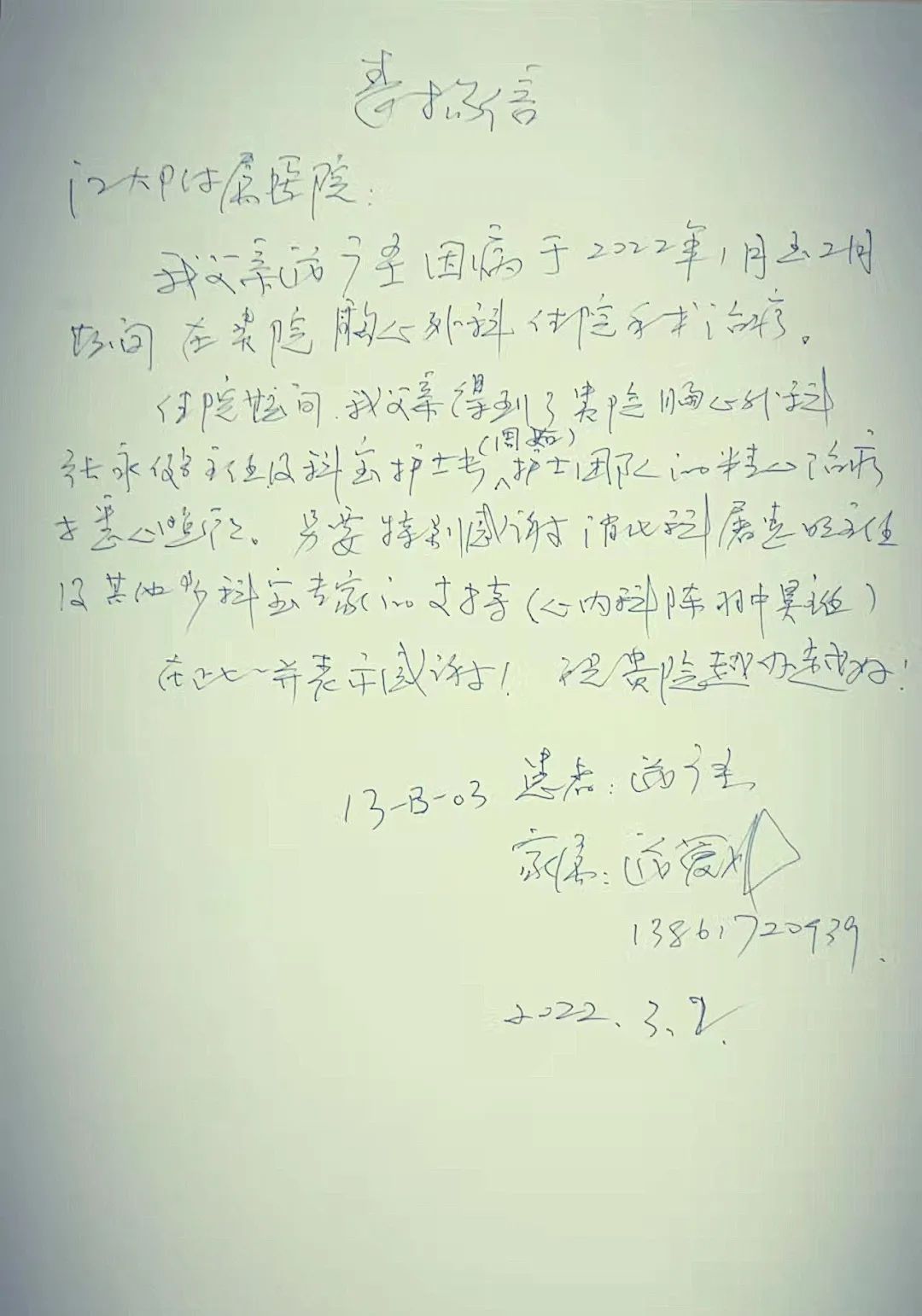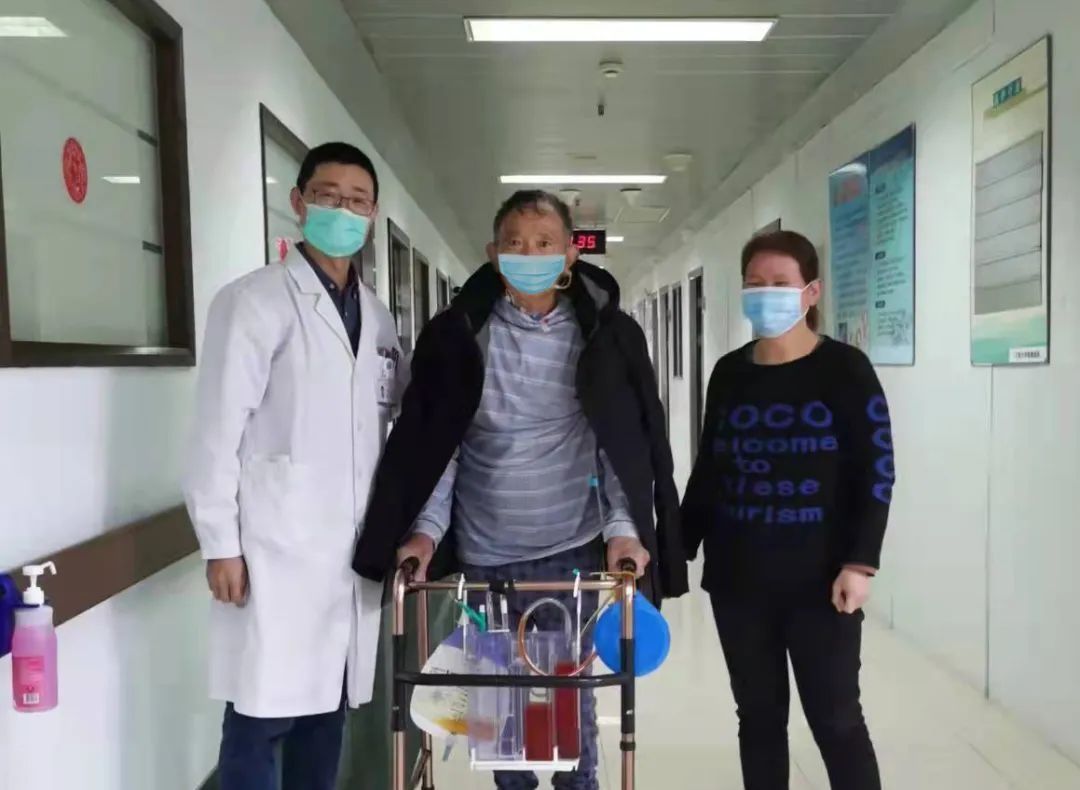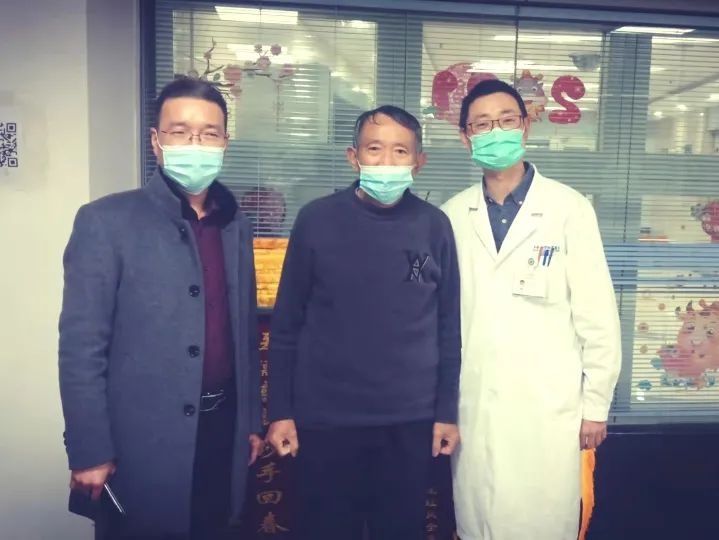Recently, Uncle Chen underwent radical surgery for esophageal cancer at the Affiliated Hospital of Jiangnan University and was discharged smoothly. Before discharge, he expressed his heartfelt thanks to the hospital’s multidisciplinary medical team for their superb medical skills and patient and thoughtful service. It was because of the multidisciplinary team that he was given a second life.

Multi-disciplinary teamwork
Preoperative multi-disciplinary discussion to formulate the best diagnosis and treatment plan
70-year-old Uncle Chen found abnormal tumor markers in the “National Early Cancer Screening” project carried out by the Affiliated Hospital of Jiangnan University. Tu Huiming, director of the Digestive Diseases Diagnosis and Treatment Center, further examined through ultrasound gastroscope and found that Uncle Chen had a 1-centimeter-long upper esophageal cancer lesion 25 centimeters away from the incisors. He was then admitted to the Second Department of Comprehensive Surgery in the North Hospital District. Upper esophageal cancer has a low rate of surgical resection, high risk, high complications and high mortality. It is generally recommended that patients undergo radiotherapy and chemotherapy to reduce the risk of surgery. However, patients may also lose the opportunity for radical surgery and the treatment effect is greatly reduced. Starting from the patient’s vital interests, the second department of comprehensive surgery organized relevant departments to conduct MDT consultation, and finally believed that radical surgery was still the best choice.
Intraoperative seamless connection to control every detail

When improving the preoperative examination , Deputy Chief Physician Zhang Yongjian found that Mr. Chen had type II atrioventricular block with a heart rate of only 48 beats/min. If the heart rate continues to drop below 40 beats/min, the patient is likely to experience cardiac insufficiency or even sudden death during the operation, and the “alarm bell” will sound instantly! After consultation, Chief Physician Chen Chonghao of Cardiology Department decided to install a temporary pacemaker for Uncle Chen. Under the protection of the pacemaker, he completed the radical operation for esophageal cancer.
On the day of the operation, the green channel was opened, and Uncle Chen was escorted to DSA first. In less than half an hour, the cardiovascular medicine team successfully completed the installation of a temporary pacemaker, and Chen’s heart rate returned to normal. Afterwards, Uncle Chen completed anesthesia in the operating room, and the team from the Second Department of Comprehensive Surgery performed “thoracoscopy + radical resection of esophageal cancer through the left chest” for him. After the surgery, Uncle Chen returned to the ward safely.
Meticulous post-surgery treatment helps fast recovery

Due to old man Chen’s many underlying diseases, postoperative , Respiratory medicine, cardiovascular medicine, and gastroenterology teams have conducted MDT consultations for many times to assist in formulating diagnosis and treatment plans to help them get through the “gates” of renal insufficiency, cardiac insufficiency, severe pneumonia, and severe diarrhea. The nursing team of the Second Department of Comprehensive Surgery closely monitors the patient’s vital signs and closely observes the changes in the condition, and formulates a detailed rehabilitation plan including lung function exercise, limb exercise, nutrition guidance, etc. Quality care. Under the careful diagnosis and treatment of various teams, Mr. Chen’s indicators quickly returned to normal and he was discharged from the hospital smoothly.
In the process of receiving treatment at the Affiliated Hospital of Jiangnan University, Mr. Chen faced not one medical staff or a single department, but the collective efforts of multidisciplinary medical staff. This MDT diagnosis and treatment fully reflects the principle of “people first, patients”. priority” concept. Since the Affiliated Hospital of Jiangnan University started its oncology MDT service in 2005, it has normalized and standardized the development of lung cancer, gastric cancer, colorectal cancer, head and neck cancer, lymphoma, gynecological tumor, unknown primary and multiple primary tumors, urinary system tumors and The MDT diagnosis and treatment service of osteochondral tumor has been widely recognized by patients and medical staff. With the in-depth development of MDT, the interdisciplinary treatment connection of patients will be smoother, and the treatment plan will be more precise.